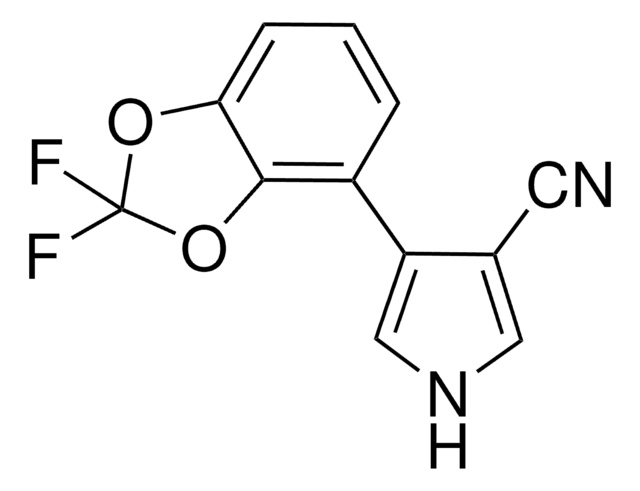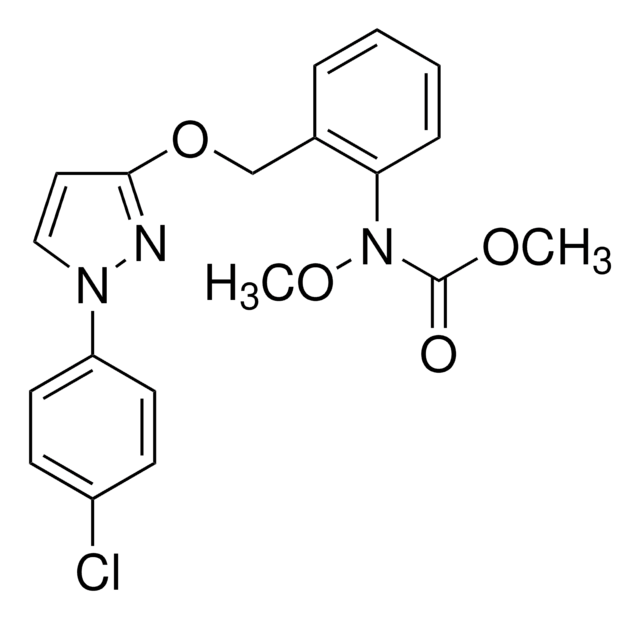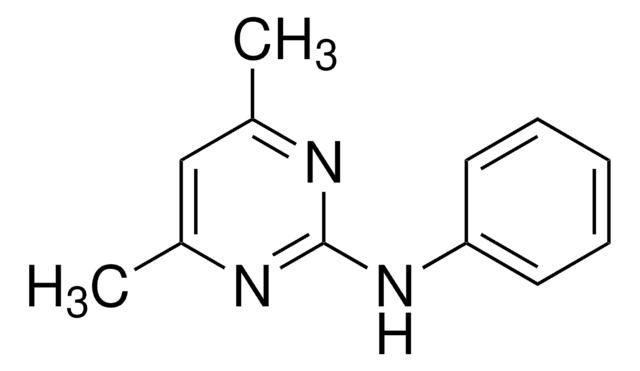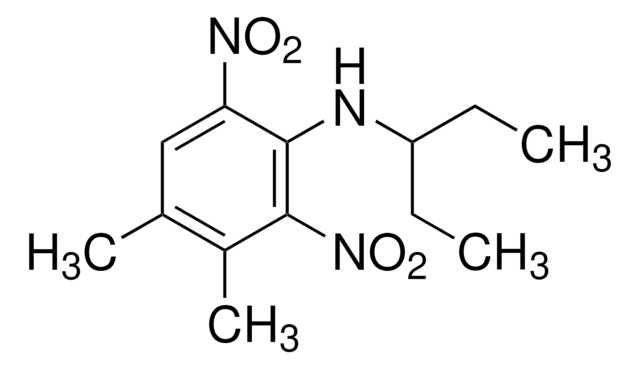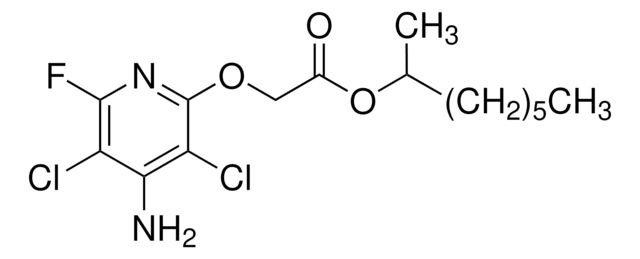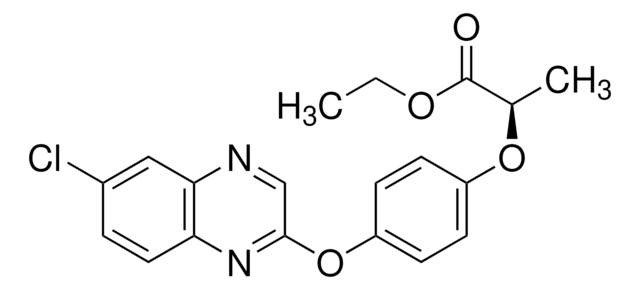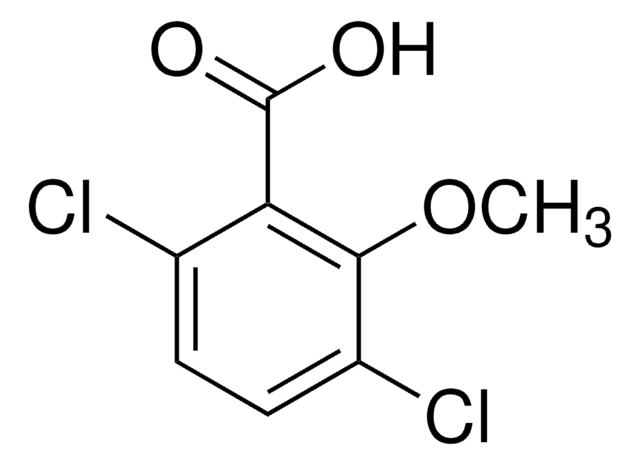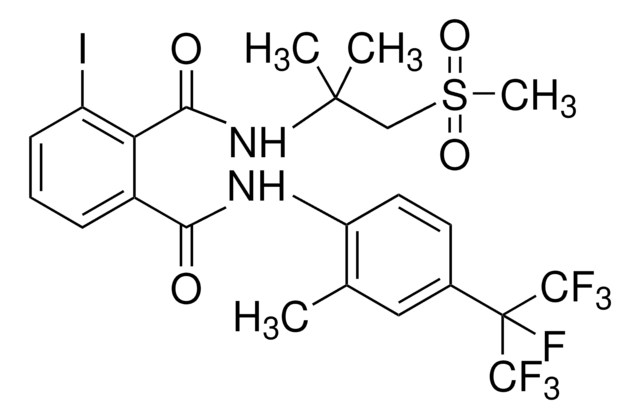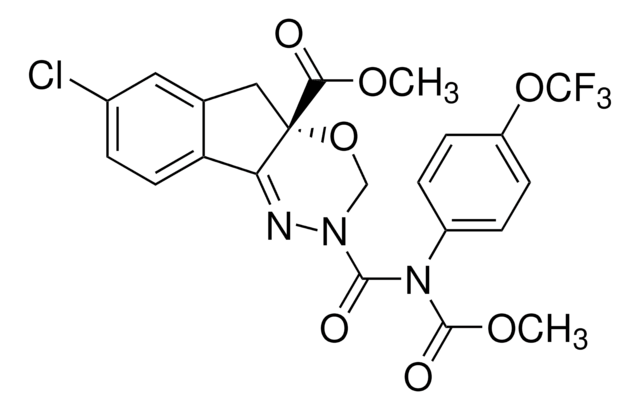31712
Fluazifop-P-butyl
PESTANAL®, analytical standard
Synonym(s):
Butyl (R)-2-[4-(5-trifluoromethyl-2-pyridyloxy)phenoxy]propionate
About This Item
Recommended Products
grade
analytical standard
Quality Level
product line
PESTANAL®
shelf life
limited shelf life, expiry date on the label
technique(s)
HPLC: suitable
gas chromatography (GC): suitable
application(s)
agriculture
cleaning products
cosmetics
environmental
food and beverages
personal care
format
neat
SMILES string
CCCCOC(=O)[C@@H](C)Oc1ccc(Oc2ccc(cn2)C(F)(F)F)cc1
InChI
1S/C19H20F3NO4/c1-3-4-11-25-18(24)13(2)26-15-6-8-16(9-7-15)27-17-10-5-14(12-23-17)19(20,21)22/h5-10,12-13H,3-4,11H2,1-2H3/t13-/m1/s1
InChI key
VAIZTNZGPYBOGF-CYBMUJFWSA-N
Looking for similar products? Visit Product Comparison Guide
General description
Application
- In different varieties of lettuce (Lactuca sativum) by capillary gas chromatography with nitrogen–phosphorus detection (NPD).
- In tea samples by modified QuEChERS (quick, easy, cheap, effective, rugged, and safe) sample preparation procedure combined with ultra-performance liquid chromatography-electrospray tandem mass spectrometry (UPLC/MS/MS).
Recommended products
Legal Information
signalword
Warning
hcodes
Hazard Classifications
Aquatic Acute 1 - Aquatic Chronic 1 - Flam. Liq. 3 - Repr. 2
Storage Class
3 - Flammable liquids
wgk_germany
WGK 3
flash_point_f
122.0 °F - closed cup - (External MSDS)
flash_point_c
50 °C - closed cup - (External MSDS)
ppe
Eyeshields, Gloves, type ABEK (EN14387) respirator filter
Choose from one of the most recent versions:
Already Own This Product?
Find documentation for the products that you have recently purchased in the Document Library.
Customers Also Viewed
Our team of scientists has experience in all areas of research including Life Science, Material Science, Chemical Synthesis, Chromatography, Analytical and many others.
Contact Technical Service

